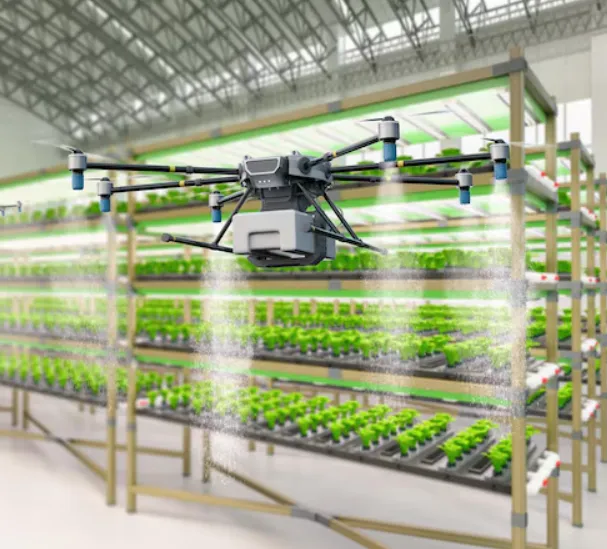Artificial Intelligence has evolved through several waves of hype. Early on, chatbots captured attention, followed by the rise of large language models capable of holding remarkably fluent conversations. Yet beyond these general-purpose systems, a quieter movement is reshaping industries: the emergence of Vertical AI. Unlike broad platforms designed for multiple tasks, Vertical AI focuses deeply on mastering the complexities of a single sector—particularly those bound by heavy regulation.
If general AI is like a versatile multitool, Vertical AI acts as a precision instrument. Nowhere is this shift clearer than in the food industry. NotCo, a company originally founded in Santiago, has developed Giuseppe AI—the first foundational AI built specifically for consumer-packaged goods. More than just a corporate achievement, Giuseppe represents a blueprint for how regulated industries can integrate AI not as a novelty, but as the backbone of innovation.
The Leap from Tradition to Technology
When NotCo began in 2015, food research was still rooted in methods that relied heavily on guesswork. Development often meant trial-and-error experiments based on outdated references, while other industries like pharmaceuticals had already embraced advanced computational tools. Recognizing this gap, NotCo envisioned a platform that could interpret food at its structural and molecular levels, and then use this knowledge to design better, healthier, and more sustainable products.
That vision materialized as Giuseppe AI. Built on proprietary data collected through years of lab work, it integrates measurements from advanced techniques such as Gas Chromatography and Fourier Transform Infrared spectroscopy—datasets that most food companies cannot easily access. Instead of leaving insights siloed, NotCo built a comprehensive knowledge base that powers an intelligent system capable of reshaping how food products are created.
A Smarter R&D Framework
Data alone isn’t enough to solve the immense challenges of food innovation. Giuseppe functions as an end-to-end intelligence platform. Its algorithms analyze enormous formulation spaces, surfacing combinations far beyond what human teams could test. It also absorbs regulatory standards and scientific findings, ensuring compliance while advancing discovery. This approach turns experimentation into a cumulative process where each test builds on the last, dramatically improving efficiency and transparency.
Traditional food R&D often struggles with fragmented information and repeated work. By contrast, NotCo’s system reframes the entire process: researchers set clear targets, define constraints, and let Giuseppe propose solutions that meet both scientific and sensory requirements. The AI doesn’t replace scientists; it equips them with insights they couldn’t reach on their own.
Closing the Gap Between Lab and Market
Innovation in the lab is only half the challenge—bringing products to scale is just as complex. A plant-based prototype may work in a test kitchen but fail under the demands of industrial production. Giuseppe AI helps bridge this divide by adjusting formulations for manufacturing, ensuring flavor consistency, nutritional compliance, and cost-effectiveness. After years of refinement, the platform has been deployed in real-world production, proving its ability to tackle the toughest challenges in food R&D.
This progress has attracted partnerships with major global players. NotCo is no longer just testing concepts for its own products—it has become a strategic partner for corporations like Kraft Heinz, which now integrate Giuseppe directly into their enterprise operations.
Why This Moment Matters
The adoption of Vertical AI comes at a time when the food sector faces urgent pressures. Consumers demand healthier, sustainable products while supply chains are destabilized by climate change, pandemics, and global conflicts. Prices of key staples like coffee, cacao, and eggs have swung dramatically. The old methods of R&D cannot keep up with these challenges, making AI not just useful but essential.
For NotCo, the journey has been one of evolution. It began as a brand introducing plant-based products to consumers and collaborating with restaurant chains like Starbucks and Burger King. Over time, however, its role expanded from innovator to infrastructure provider—embedding its technology within the workflows of some of the world’s largest food companies.
A Glimpse of the Future
Giuseppe AI illustrates why Vertical AI is more than a passing trend. It signals a new era in which AI systems are purpose-built for industries, grounded in proprietary data, and designed to function within strict regulations. Unlike broad generative tools, these vertical systems solve problems with direct impact on safety, sustainability, and scalability.
The first wave of AI focused on versatility—writing text, generating images, or coding. The next wave is about depth: platforms like Giuseppe that address trillion-variable problems in critical industries.
NotCo started with a bold question: Could AI change the way we eat? A decade later, the answer is clear. Giuseppe AI is not only accelerating product development but also redefining what’s possible in one of the world’s most vital industries. Vertical AI isn’t a distant vision—it’s already here. And those who embrace it will shape the standards of innovation, safety, and sustainability for the years to come.





